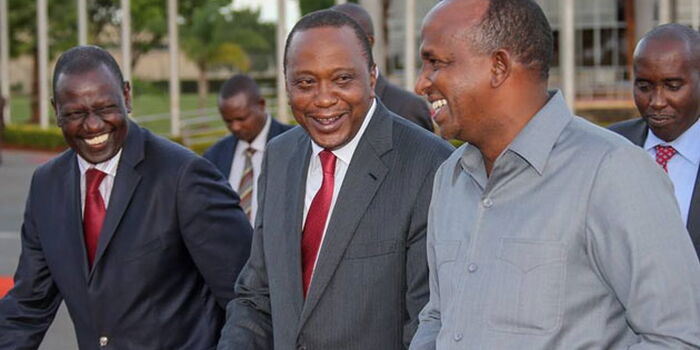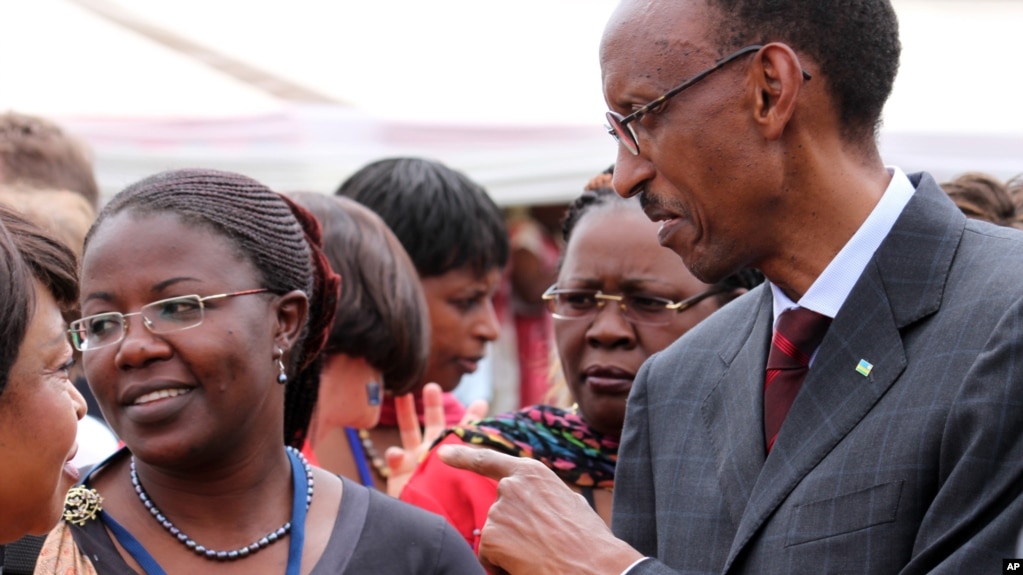 In august ,female legislators adopted a new tactic that they hoped will see parliament pass the controversial two-third-gender rule. The lawmakers decided to wear white head-scarfs every Wednesday afternoon, until the National Assembly passed the crucial legislation.
In august ,female legislators adopted a new tactic that they hoped will see parliament pass the controversial two-third-gender rule. The lawmakers decided to wear white head-scarfs every Wednesday afternoon, until the National Assembly passed the crucial legislation.
Over 40 female legislators caused a stir in the floor of the house after they walked to the chamber while donning the scarfs, catching their male colleagues, including Speaker Justin Muturi, unawares.
 On Tuesday , all eyes will be on the National Assembly today as the Second Reading of the Constitution of Kenya (Amendment) Bill 2018 is set to take place.
On Tuesday , all eyes will be on the National Assembly today as the Second Reading of the Constitution of Kenya (Amendment) Bill 2018 is set to take place.
Deputy President William Ruto has asked male members of parliament (MP) to steer support for the two thirds gender rule bill that will be tabled in the National Assembly on Tuesday.
Speaking in Kitutu Chache North Constituency, Kisii County, on Saturday, he noted that such a law would help Kenya reach its full potential in development.
Given that it is a constitutional matter, the bill needs a nod from two-thirds of the House to sail through to the next stage.
SG @edwinsifuna today joined the Party Leader @RailaOdinga in rallying party MPs to support the Two Third Gender Rule Bill which will be on the floor of the House Tuesday. He said the ODM Party has been on the forefront in supporting women empowerment. pic.twitter.com/Dcs1TF1kyV
— The ODM Party (@TheODMparty) November 19, 2018
Top politicians have voiced support for the bill that is sponsored by Majority Leader Aden Duale.
Deputy President William Ruto said last week that MPs should back it for the sake of their mothers, wives and daughters.
Former Prime Minister Raila Odinga on Monday said passage of the bill will help the country banish discrimination against women, while former Vice President Kalonzo Musyoka said approval of the proposed law will help marginalised voices participate in national politics.
What is the 2/3 gender rule?

Drafters of the 2010 Constitution did not want a situation where one gender is overly represented in Parliament.
As such, they stipulated that the National Assembly and the Senate should not have more than two-thirds of their members of the same gender.
“Not more than two-thirds of the members of elective public bodies shall be of the same gender,” says Article 81 (b) of the Constitution.
My statement during the meeting with Kenya Women Parliamentarians (KEWOPA) on matters Two-third-Gender bill which will be tabled in Parliament tomorrow for the 2nd reading. I urge all our Members to support this bill. pic.twitter.com/h51HA5eVER
— Kalonzo Musyoka (@skmusyoka) November 19, 2018
Because the Constitution did not dictate on how the two-thirds gender rule can be implemented, the attorney-general’s office sought an advisory from the Supreme Court on how to meet the requirement.
In December 2012, the apex court determined that gender principle had not been transformed into a full right capable of direct enforcement, advising that there be progressive implementation within five years of the promulgation of the Constitution.
“We are of the majority opinion that legislative measures for giving effect to the one-third-to-two-thirds gender principle, under Article 81(b) of the Constitution and in relation to the National Assembly and Senate, should be taken by August 27, 2015,” said a Bench of five Supreme Court judges.
However, by August 2015, still there was no law passed on the case, and it made the Centre for Rights Education and Awareness, Community Advocacy and Awareness Trust to sue the two Houses of Parliament for the delay.
In a verdict issued in March 2017, High Court judge John Mativo said that if the gender principle had not been implemented by June that year, anyone could write to the Chief Justice to advise the president to dissolve Parliament.
Mr Ruto was hosted by area lawmaker Jimmy Angwenyi, who is the longest serving MP in the 12th parliament.
“I urge Mr [Angwenyi], who had opposed the two thirds gender rule, to lead other MPs in passing it on Tuesday,” he said.
Majority Leader Aden Duale (Garissa Town) is the sponsor of the bill aimed at ending the gender imbalance in the management of government affairs.
Mr Ruto said, “Let us ensure women take their rightful positions in leadership.”
At the core of the bill is a nomination criterion to ensure that at any given time, the number of women is at least a third of the total.
Because it is hard to legislate on elective positions, the bill proposes that after an election has been finalised and the gender numbers calculated, the right number of women be nominated.
Numbers for the nomination will be shared by political parties depending on their strength in Parliament.
Currently, the National Assembly has 75 women MPs — 22 elected from the 290 constituencies in the last election, six nominated in the 12 nomination slots while 47 were elected as woman reps.
The Senate has three elected women from the 47 counties, while 18 are nominated.
The passage of Mr Duale’s bill could see the country pay about Sh60 million more in monthly salaries and other allowances to the nominated women MPs. In terms of representation in Parliament, Rwanda leads in the Eastern Africa region with 61 per cent of MPs being women, according to World Bank data.
In terms of representation in Parliament, Rwanda leads in the Eastern Africa region with 61 per cent of MPs being women, according to World Bank data.
Tanzania’s women parliamentarians amount to 36 per cent of the total.
Burundi has a similar percentage.
Uganda follows with 34 per cent while Kenya is trailing at 22 per cent.
Mr Odinga said on Monday that although Kenya is a dominant political and economic power in the region, it remains the only country yet to establish affirmative action for gender representation in Parliament.